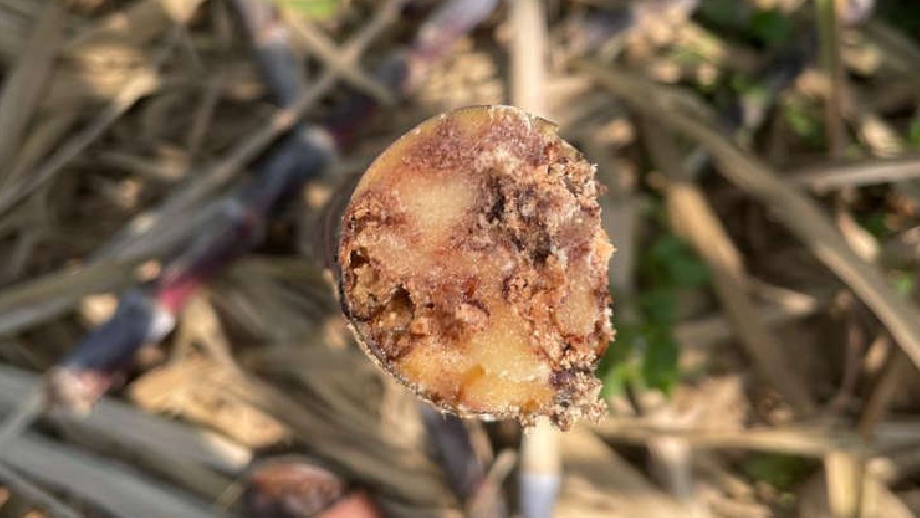
By the time the sun rose over the quiet fields of Gamadan, in Kura Local Government Area in Kano State, Ahmadu Bala was already standing in the middle of his sugarcane farm.
This place once brought him pride, joy, and millions of naira.
Today, he stood still, watching in silence as smoke curled into the sky from the burnt remains of his crops.
For years, Ahmadu had been known across Kura for his thriving sugarcane farm. Every harvest season, he made over N10 million from selling sugarcane to buyers coming from within and outside Kano State.
But this year, a strange and deadly worm attack has turned his success story into a tale of heartbreak and debt.
“I sprayed insecticide worth N500,000 to protect my sugarcane, but all my effort went in vain. The worms destroyed everything," Ahmadu said.
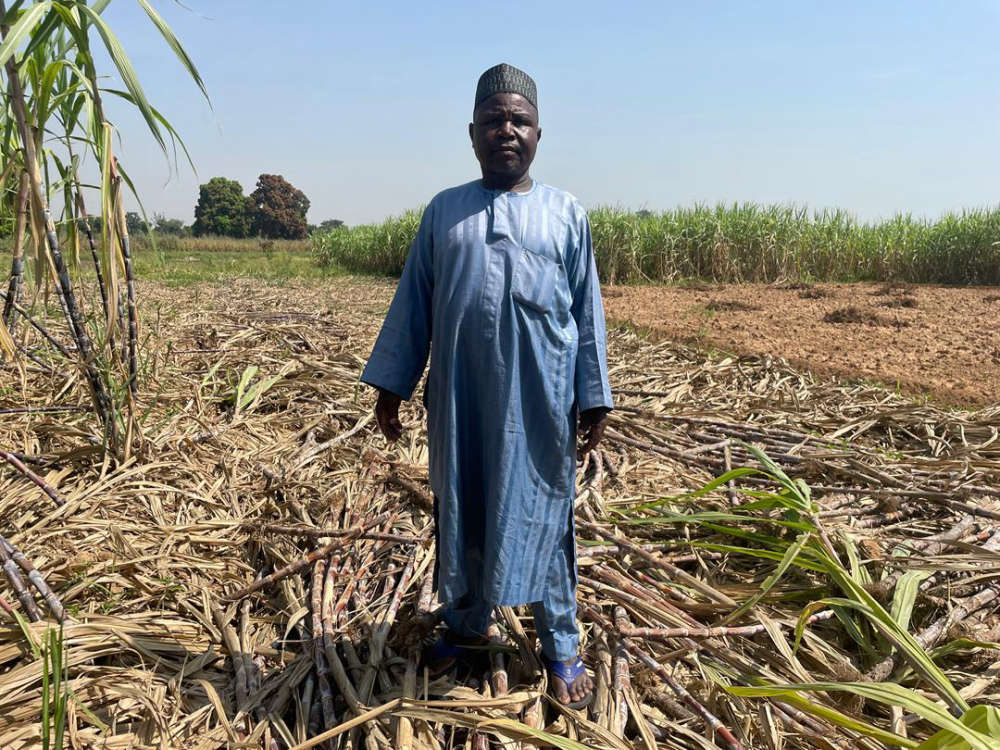
Ahmadu Bala on his burnt farm
"I may end up getting less than N500,000 from the farm this year.”
Ahmadu’s biggest worry now is how to repay the N3 million loan he invested in the farm.
With nearly all his sugarcane destroyed, there is nothing left to harvest or sell.
A Farm Turned to Ashes
At the nearby farm of Mallam Abdulhamidu Gamadan, the story is no different.
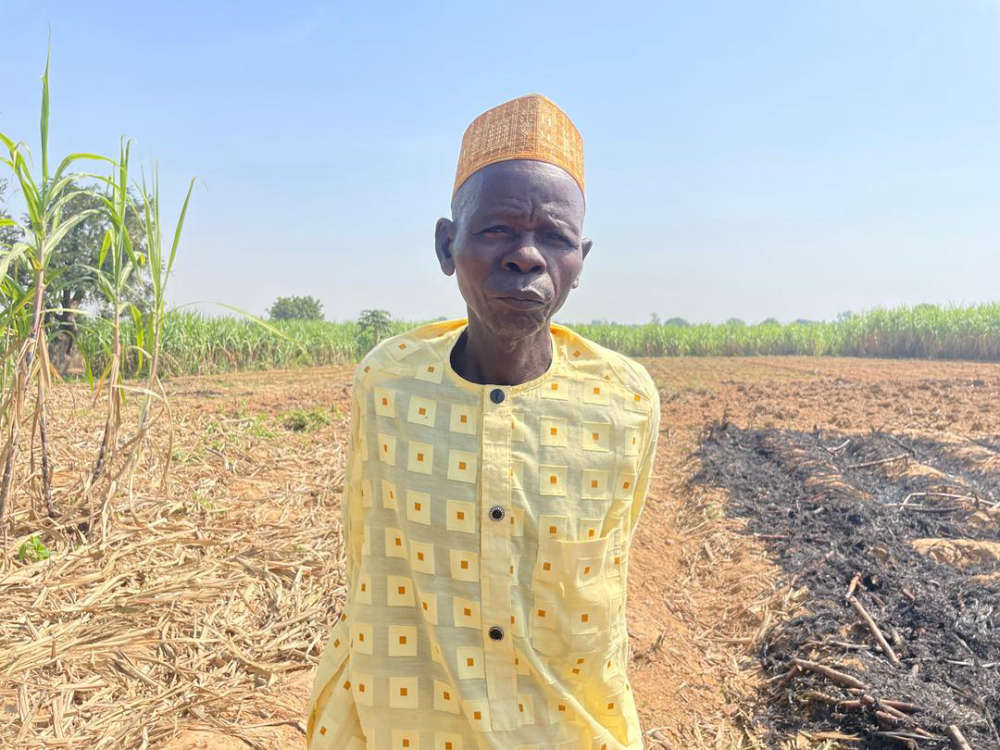
Abdulhamidu Gamadan on his destroyed farm
He says the worms attacked his N10 million worth of crops so badly that he decided to burn them all.
“The damage was too much. If I take it to the market, I’ll spend money on transport, and still, nobody will buy. The sugarcane has lost its sweetness. It is better to burn it than waste more money.”
Abdulhamidu had taken a N1.5 million loan to finance his sugarcane business.
Now, with only a few healthy stalks left, he says he may not even make N1 million in profit from what remains.
“Everything is gone. We have never seen this kind of worm in our lives.
"It eats the sugarcane from the inside, leaving it dry and bitter.”
A Double Loss
For Auwalu Isa Gamadan, the damage came with double pain. He lost both his sugarcane farm, worth N3.2 million, and his maize farm, where he normally harvested about 60 bags.
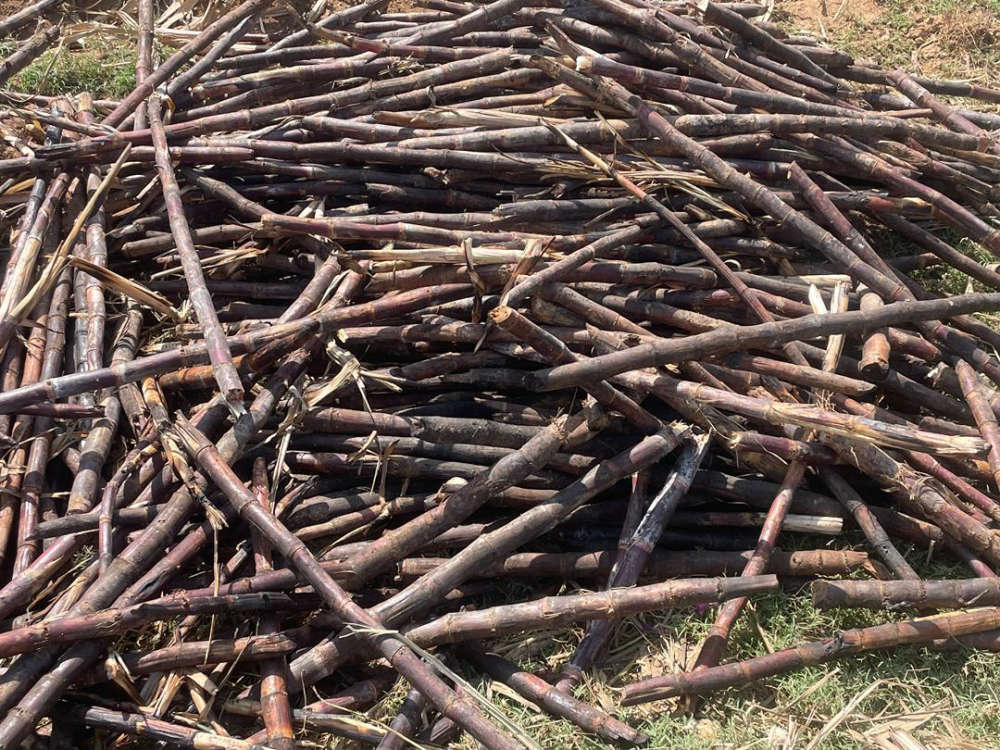
The worms not only destroyed his crops but also his hope of feeding his family.
“Now, I don’t know how to feed my wife and children. This farm is our only source of income. When the worms came, we tried to fight them with chemicals, but it didn’t work. We have lost everything.”
Nearby, Garba Dan-Ali Gamadan, a smallholder farmer, suffered a similar fate. His sugarcane, worth N3.2 million, was completely eaten up by the worms.
Like Abdulhamidu, he had no choice but to burn his field to stop the spread of the pest.
“When you walk through our farms now, you can hardly find a single sugarcane stick that is not affected. The worms are everywhere.”
The Once-Booming Sugarcane Hub
The outbreak, which has spread across at least five communities, has led to millions of naira in losses, plunging farmers into debt, and threatening the state’s sugarcane and food supply chain.
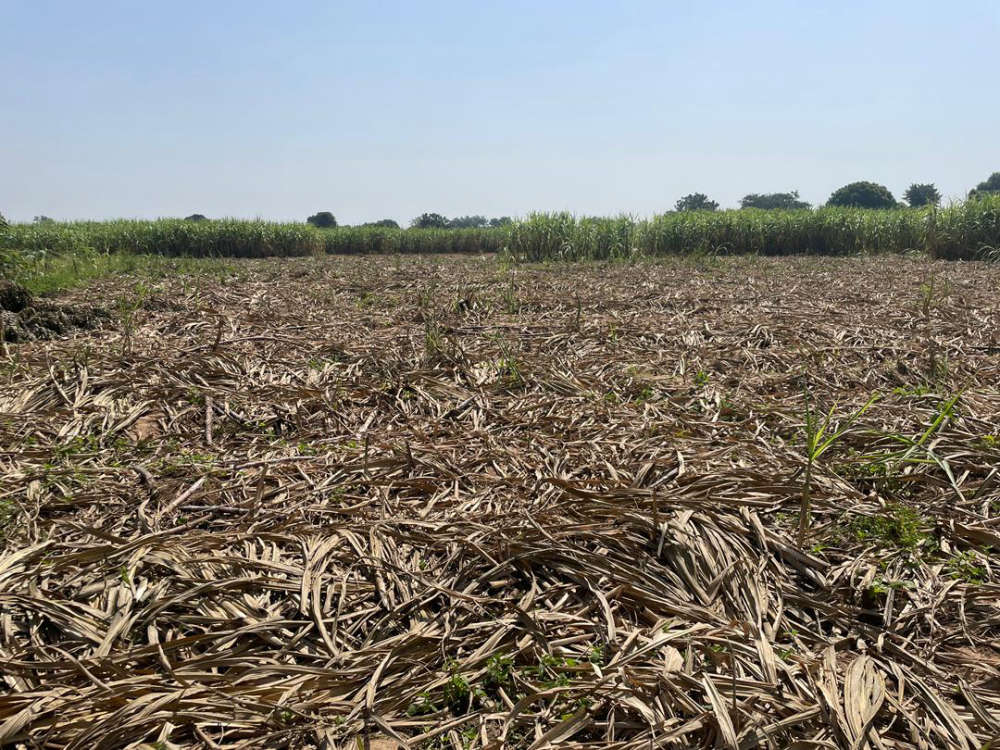
Gamadan, a community long known as one of the largest sugarcane hubs in Kano State, now wears a sad look.
Before the outbreak, it was common to see at least 30 trucks of sugarcane leaving the village every week, heading to other parts of the state and beyond.
When we visited the community, we noticed that it was difficult to find a single healthy stalk.
Even the sugarcane that survived no longer tastes sweet - a clear sign of the damage caused by the worms.
The business supported hundreds of families, from farmers to truck drivers and traders. But this year, that bustling activity is gone.
According to Mallam Usman Abdu, the chairman of the Gamadan Farmers Association, the situation is the worst the community has seen in years.
“More than 500 farmers across five communities have been affected,” he said.
“Some of them took loans from banks and microfinance institutions.
"We are appealing to those banks to be patient with us. We did not expect this kind of disaster.”
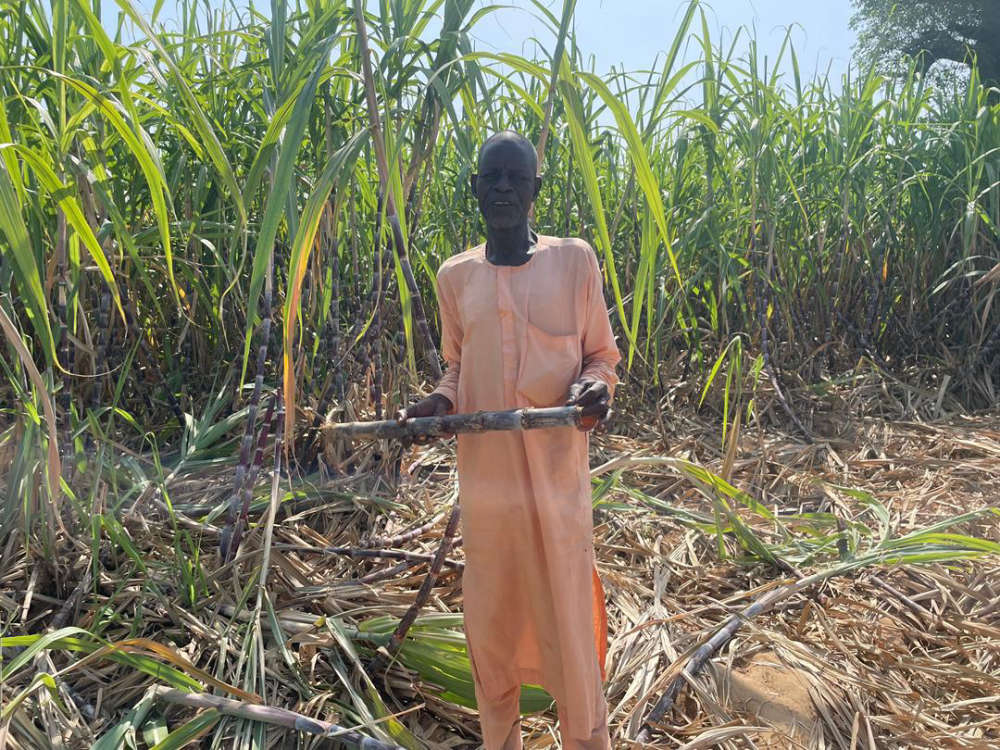
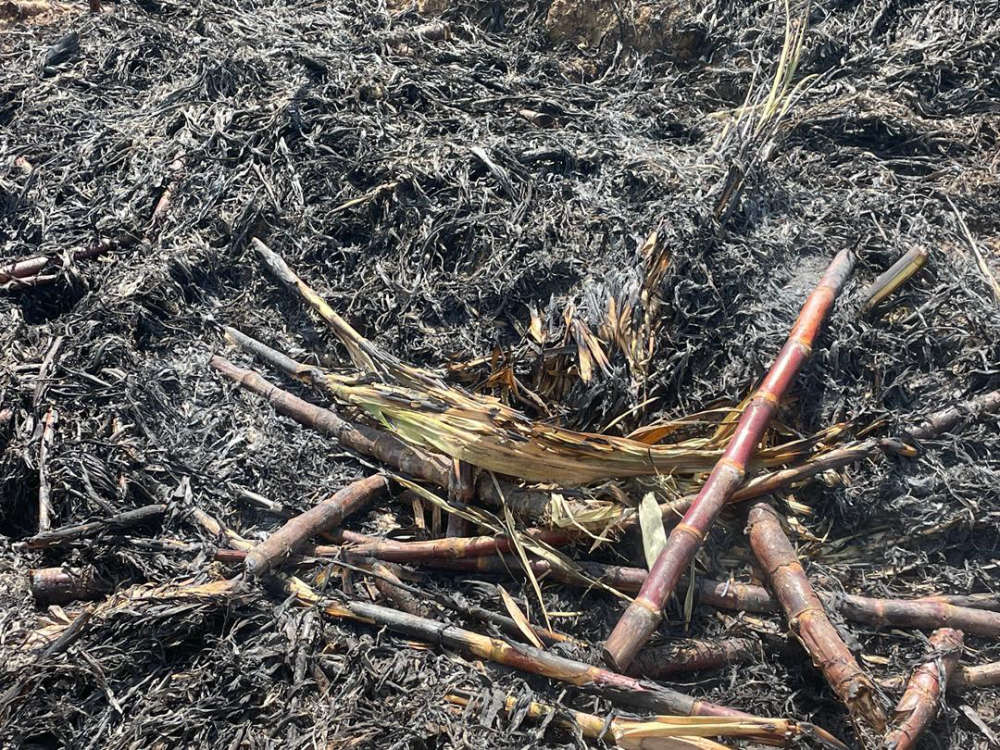
He said the farmers had tried to control the worm attack with various insecticides, but nothing worked.
Many of them, he added, are now in debt and fear losing their land or equipment if they cannot repay their loans.
“We Can No Longer Feed Our Families”
The village head of Gamadan, Ali Audu, said the outbreak has thrown the entire community into distress.

Ali Audu, Village Head of Gamadan
“The sugarcane farming was our main source of food and income, but now the farmers can no longer feed their families. Most of them depend on sugarcane sales to send their children to school and take care of their homes.”
He appealed to government agencies, NGOs, and well-meaning individuals to come to the community’s aid.
“If help doesn’t come soon, many families here will go hungry. We need support to recover from this loss in seeds, fertiliser, and maybe a little financial help to restart.”
What Experts Are Saying
Experts believe the disaster could have been reduced if preventive measures had been taken earlier.
According to Aminu Ibrahim, the Director of Agricultural Extension at the Kano State Agricultural and Rural Development Authority (KNARDA), the infestation is a serious warning for farmers to adopt better farming practices.
“The affected farmers must sanitise their farms properly to kill any remaining worms or eggs,” he advised.
“They should also practice crop rotation. Don’t plant sugarcane on the same land every year. That’s how to prevent recurrence.”
According to him, KNARDA is already preparing a report to present to the Kano State Government, requesting emergency assistance for the affected farmers.
No doubt the caterpillar worm outbreak in Kura has destroyed millions of naira worth of crops and left hundreds of farmers uncertain about their future.
However, the farmers believe that with support, patience, and prayer, their land, now dry and broken, will one day bloom green again.


